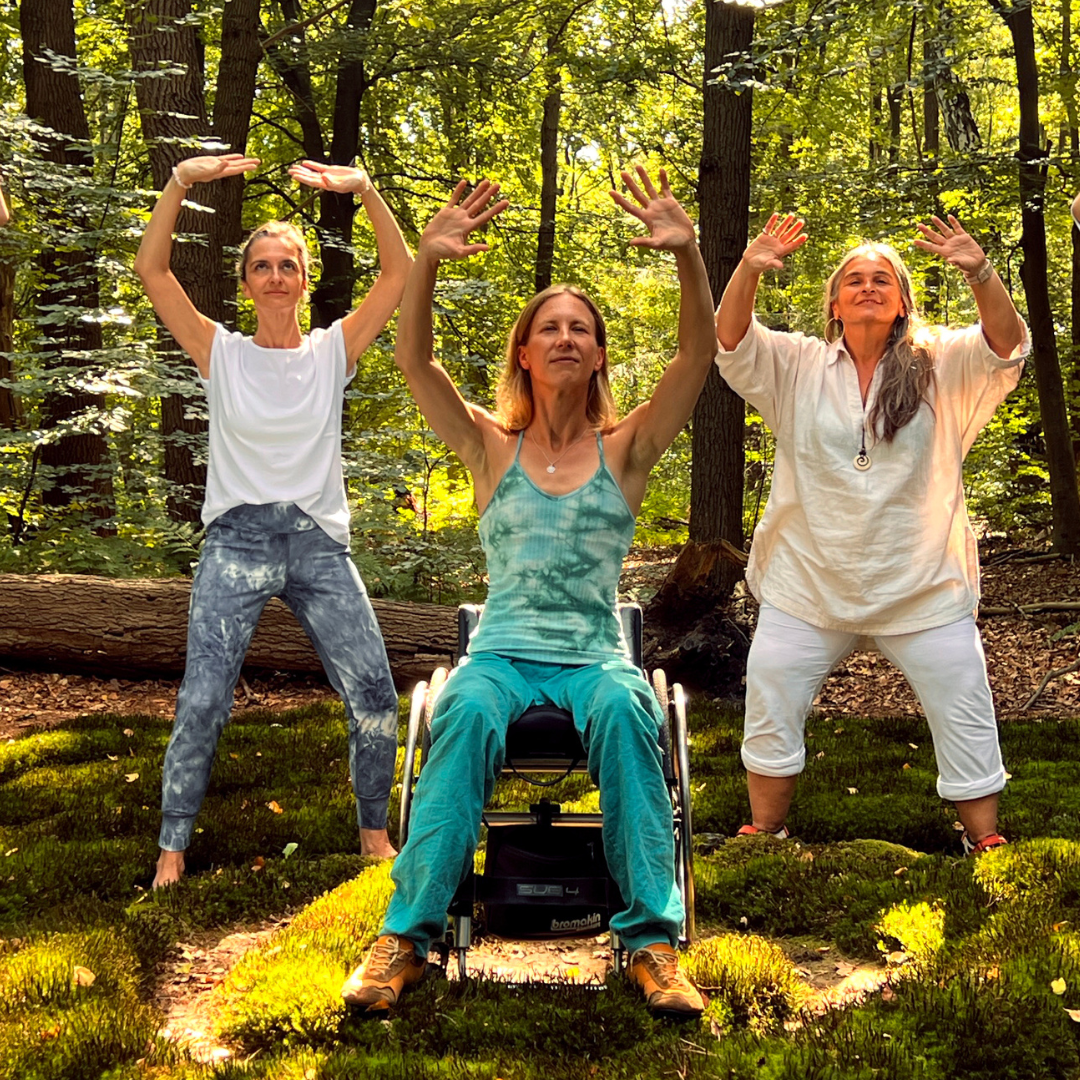Discover your Energy
Roll into a world of movement and mindfulness, where flexibility meets fun. Embrace the flow, find your balance, and breathe in the magic of our classes. Let your energy guide you through each pose, connecting body, mind and spirit.
About Qigong
QiGong means “energy work” and is practiced in order to achieve good health and emotional well being. Qigong Flow is like a meditation in motion! Movements are typically soft, gentle and flowing, and are combined with breathwork and mindful awareness. The movements adapt very nicely to a seated workout, and as a paraplegic, the practice has been really helpful and has inspired me to share Qigong with others. I believe that anybody can practice and benefit from Qigong. My aim is to make Qigong accessible for anybody that would like to learn. All of my classes are taught seated, you are welcome to practice either seated or standing.
My teachings follow the YoQi method and the 6 Phases of Qigong Flow. This is a modern blend of Yoga and Qigong, combining traditional postures and movements with modern methods of sequencing to create flows. This creative method allows freedom of expression, as well as providing a framework to design sequences for specific physical or emotional imbalances.
About the class
Benefits
Recovery from trauma / injury. Promotes and improves self- healing
Increased circulation / less stagnation / infection / disease
Increased mobility, range of motion, co-ordination, flexibility, strength
Good for tendons, ligaments and joints
Relaxation, Focus, Body Awareness
Improves and increases energy levels & vibration, awakening
Calmness, Improved Clarity, a sense of wellbeing, oneness
Happiness & Gratitude for life
How to sit
Find a warm and comfortable, quiet space for your practice where you can be undisturbed
Wear warm and comfortable clothes, which are loose fitting and without any tight seams
The class will be practiced from your wheelchair, or seated on a stool. You are also welcome to stand if you are able
If you have good sitting balance, you can sit towards the front of your cushion and place your feet on the floor, or on a mat/book/cushion. The feet should be hip width apart, you can place a cushion between your knees if this helps. You can also keep your feet on your footplate if you need them for balance. Whilst we are looking to find a good posture with the hips, legs and feet, it is more important that you feel comfortable, balanced and stable doing the exercises.
It can be useful to remove any arm rests on your wheelchair if it is safe for you to do so, to allow freedom of movement for your arms.
Breathing
The breathing is quiet, soft and gentle. Release any constrictions in your throat and let the breath flow quietly and naturally!
Generally we practice deep abdominal breathing throughout the workouts, relaxing the chest and letting the breath sink down into the lower belly, known as the Lower Dantian. The breath helps to guide our movement, and the movement also helps to guide the breath, allowing our minds and bodies to unite.
If you feel out of breath or dizzy at any time, take a break and let your breath return to your normal, natural breath rate.
Qigong Flow
Qigong movements are typically slow, soft and gentle. We use about 70% effort in QiGong – so initially the most difficult part can be not trying too hard! Always work within your comfortable limits - if any of the movements are painful or restrictive, make the movement smaller so that it feels natural and comfortable. I will guide you through the adaptions of each exercise based on your ability.
We also use body tapping, self-massage and shaking to help release tension from the body and to allow the Qi to flow
Please note that I am not a medical practitioner, and I am unable to offer advise on specific conditions. Please ask your Consultant or GP if you are unsure if this class is suitable for you.

